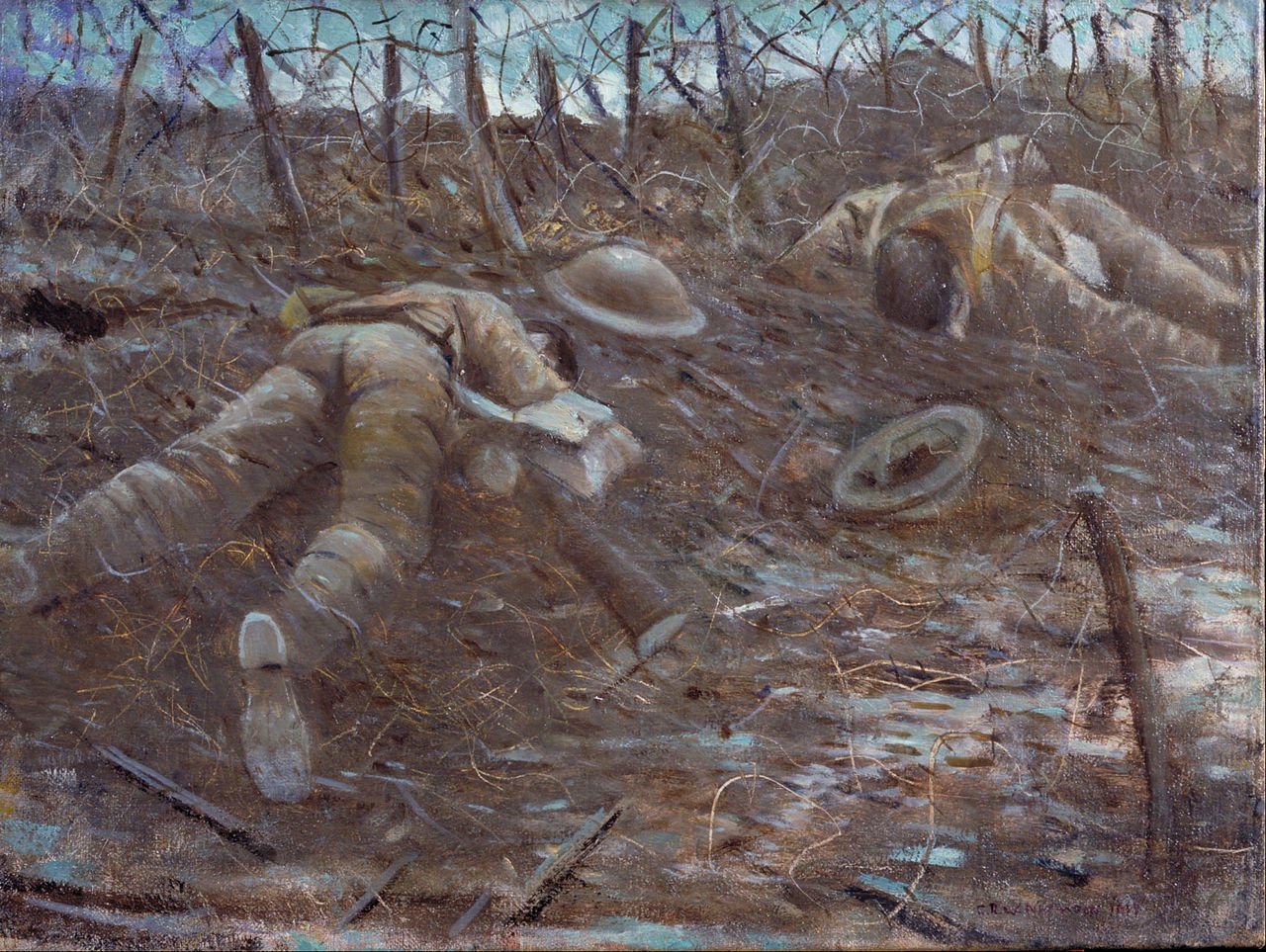
Grodek Trakl (Interpretation)
Grodek ist ein Gedicht von Georg Trakl, das die Erinnerung an die Schlacht von Gródek (1914) in Ostgalizien (heutige Ukraine) [1] wachhält: Bei Gródek fand zu Beginn des Ersten Weltkrieges eine erbitterte Schlacht zwischen russischen und österreich-ungarischen Truppen statt. Inhaltsverzeichnis 1 Sprache und Form 2 Das Gedicht
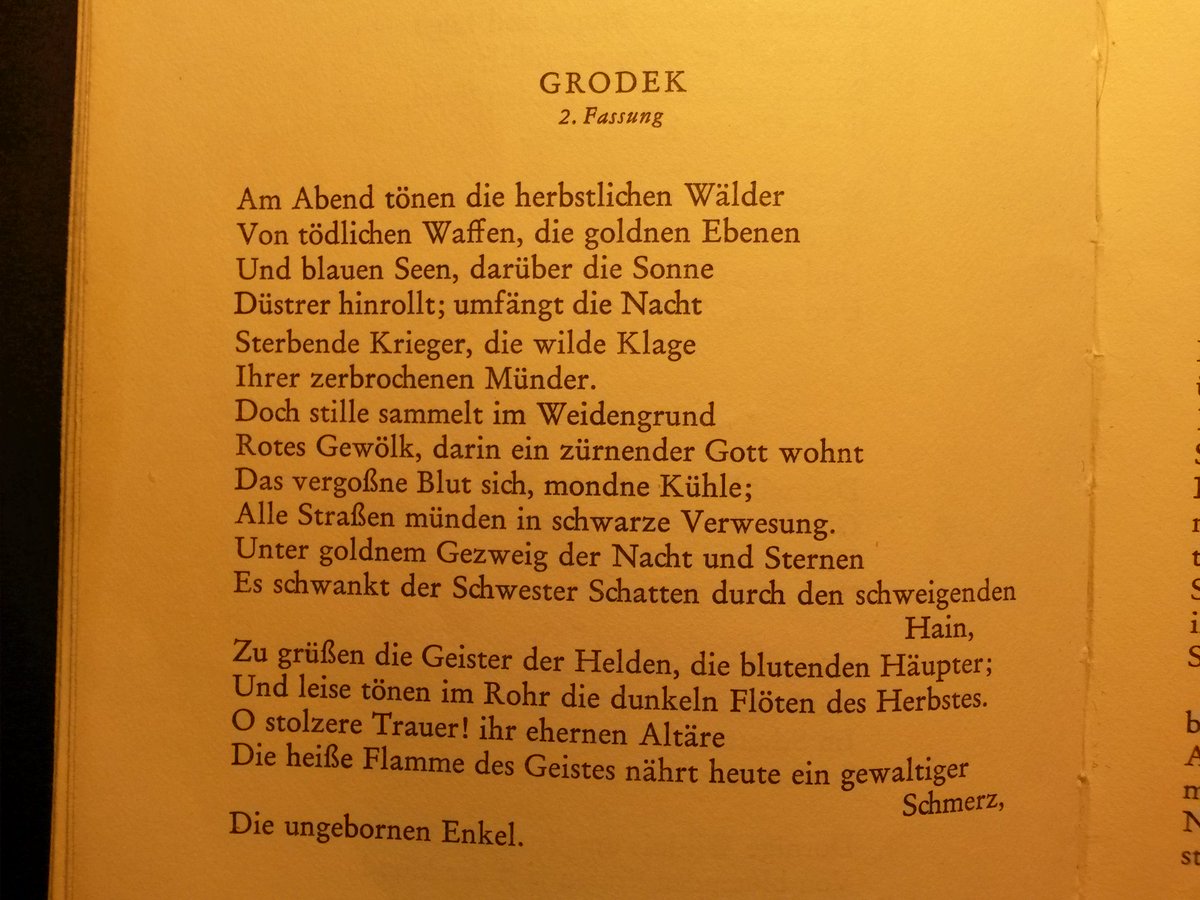
Trakl on Twitter "Letztes Gedicht Trakls, im September 1914 im Feld in einer
Home Lyrik Grodek 1. Am Abend tönen die herbstlichen Wälder 2. Von tödlichen Waffen, die goldenen Ebenen 3. Und blauen Seen, darüber die Sonne 4. Düster hinrollt; umfängt die Nacht 5. Sterbende Krieger, die wilde Klage 6. Ihrer zerbrochenen Münder. 7. Doch Stille sammelt im Weidengrund 8. Rotes Gewölk, darin ein zürnender Gott wohnt 9.

Polvo El último poema de Trakl
Das Gedicht „ Grodek " stammt aus der Feder von Georg Trakl. Am Abend tönen die herbstlichen Wälder Von tödlichen Waffen, die goldnen Ebenen Und blauen Seen, darüber die Sonne Düstrer hinrollt; umfängt die Nacht Sterbende Krieger, die wilde Klage Ihrer zerbrochenen Münder. Doch stille sammelt im Weidengrund

Heym, Der Krieg Gedichtvergleich mit Grodek Trakl) GRIN
Gedichte: Grodek | Georg Trakl Grodek 2. Fassung Am Abend tönen die herbstlichen Wälder Von tödlichen Waffen, die goldnen Ebenen Und blauen Seen, darüber die Sonne Düstrer hinrollt; umfängt die Nacht Sterbende Krieger, die wilde Klage Ihrer zerbrochenen Münder. Doch stille sammelt im Weidengrund Rotes Gewölk, darin ein zürnender Gott wohnt

Grodek Trakl Editura ART
Das Gedicht „ Grodek " wurde von Georg Trakl geschrieben und im Jahr 1914 veröffentlicht. Darin geht es um die schrecklichen Erfahrungen aus dem Krieg. Trakl verarbeitet seine Kriegserfahrung von der Schlacht zwischen Russland und Österreich mithilfe dieses Gedichts. Du kannst „Grodek" in die Epoche des Expressionismus einordnen.

ΚΟΙΝΟΤΗΣ Trakl
The unborn grandchildren. In August of 1914, at the outbreak of war, Trakl returned to the army, and served in the field near Galicia. He felt the hopelessness of the badly wounded more than most men, and his work brought him into great depressions. After the battle of Grodek, ninety badly wounded men were left in a barn for him to care for.

Grodek Trakl Editura Grafic
Georg Trakl was born into a protestant family in Salzburg on 3rd February 1887. His mother was depressed throughout his childhood and Trakl showed similar signs of emotional instability, often withdra. Grodek In the evening the autumnal forests tint Of deadly weapons, the golden plains And blue lakes, above them the sun Gloomy rolls down.
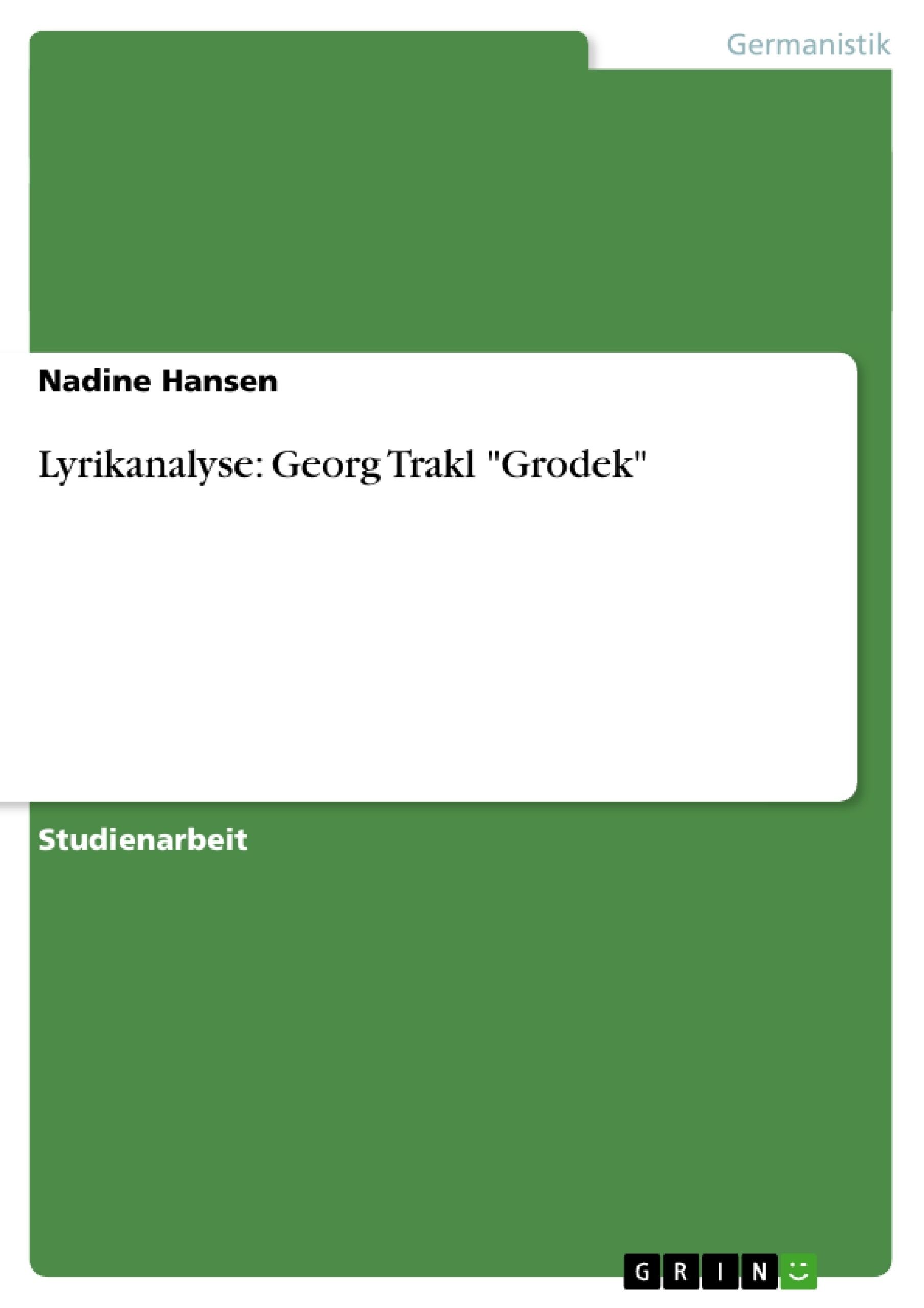
Lyrikanalyse Trakl "Grodek" GRIN
Grodek Interpretation #334 Grodek - Trakl (Interpretation) Text Christopher Nevinson - Wege zum Ruhm (1917) Gedicht: Grodek (1914) Autor/in: Georg Trakl Epoche: Expressionismus Strophen: 1, Verse: 17 Verse pro Strophe: 1-17 Am Abend tönen die herbstlichen Wälder Von tötlichen Waffen, die goldnen Ebenen Und blauen Seen, darüber die Sonne

Grodek Trakl) Setting of the original poem `Grodek´ YouTube
of their shatterèd mouths. Yet quietly in the willow meads. - blood red the clouds, wherein an ireful god dwells -. the spilled, shed blood gathers, moonlit coolness; all the roads ending in rot and in black decay. Under golden branches of night and of stars. the sister's shadow staggers through the deathly still grove.
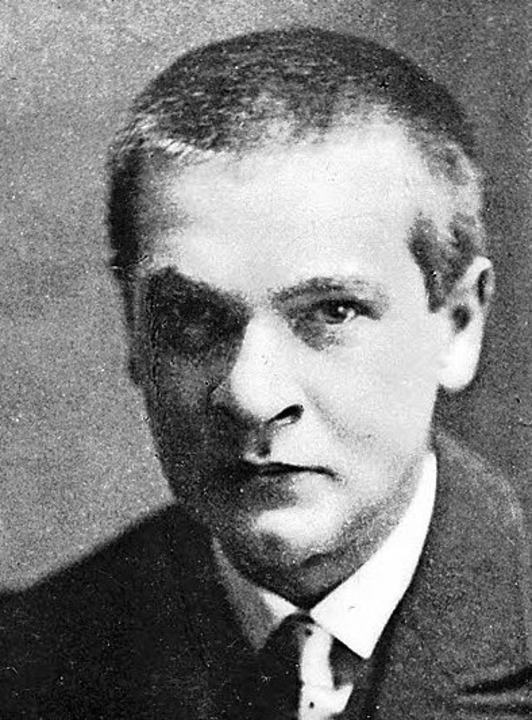
Die tiefe Leiderfahrung des modernen Menschen Literatur Badische Zeitung
The original poem "Im Osten" (which follows the English here) was probably written in the aftermath of the Battle of Grodek. Trakl, a pharmacist with the medical corps, had been left alone with a.

440. Trakl El poeta de a muerte Babel XXI
Grodek by Georg Trakl - Famous poems, famous poets. - All Poetry English translation German Grodek In the evening the autumnal forests tint Of deadly weapons, the golden plains And blue lakes, above them the sun Gloomy rolls down; embraces the night Dying warriors, the wild lament their broken mouths. But still gathers in the willow ground
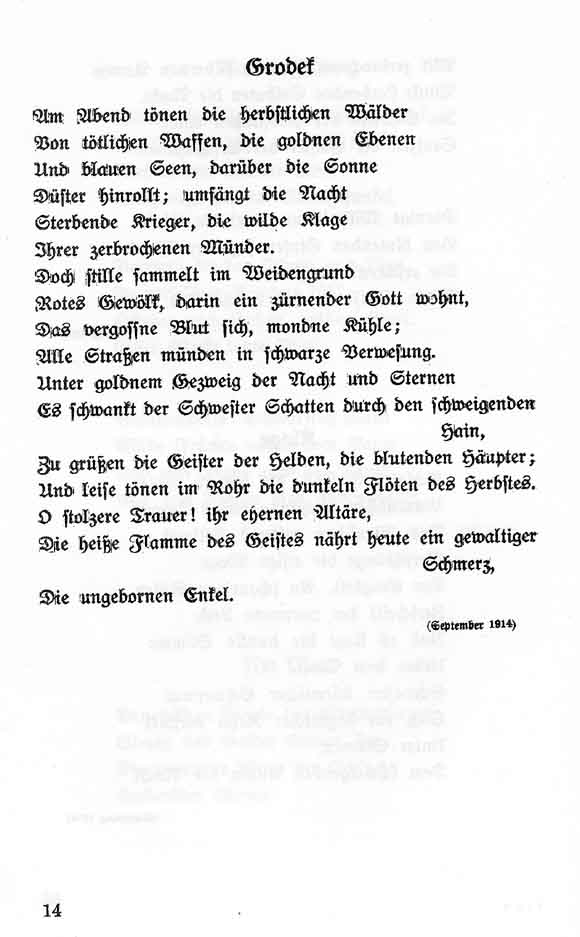
Grodek (Gedicht) Wikipedia
Red clouds inhabited by an angry god, Shed blood, and the chill of the moon. All roads lead to black decay. Under golden branching of the night and stars. A sister's shadow sways through the still grove. To greet the heroes' spirits, the bloodied heads. And softly in the reeds Autumn's dark flutes resound.

Descontexto "Historia de dos ciudades", de Charles Dickens
" Grodek " is a poem about World War I written by Georg Trakl, an Austrian Expressionist poet. It was one of his last poems, if not his very last poem. Historical background Georg Trakl enlisted in the Austro-Hungarian army as a medic in 1914 at the beginning of World War I.
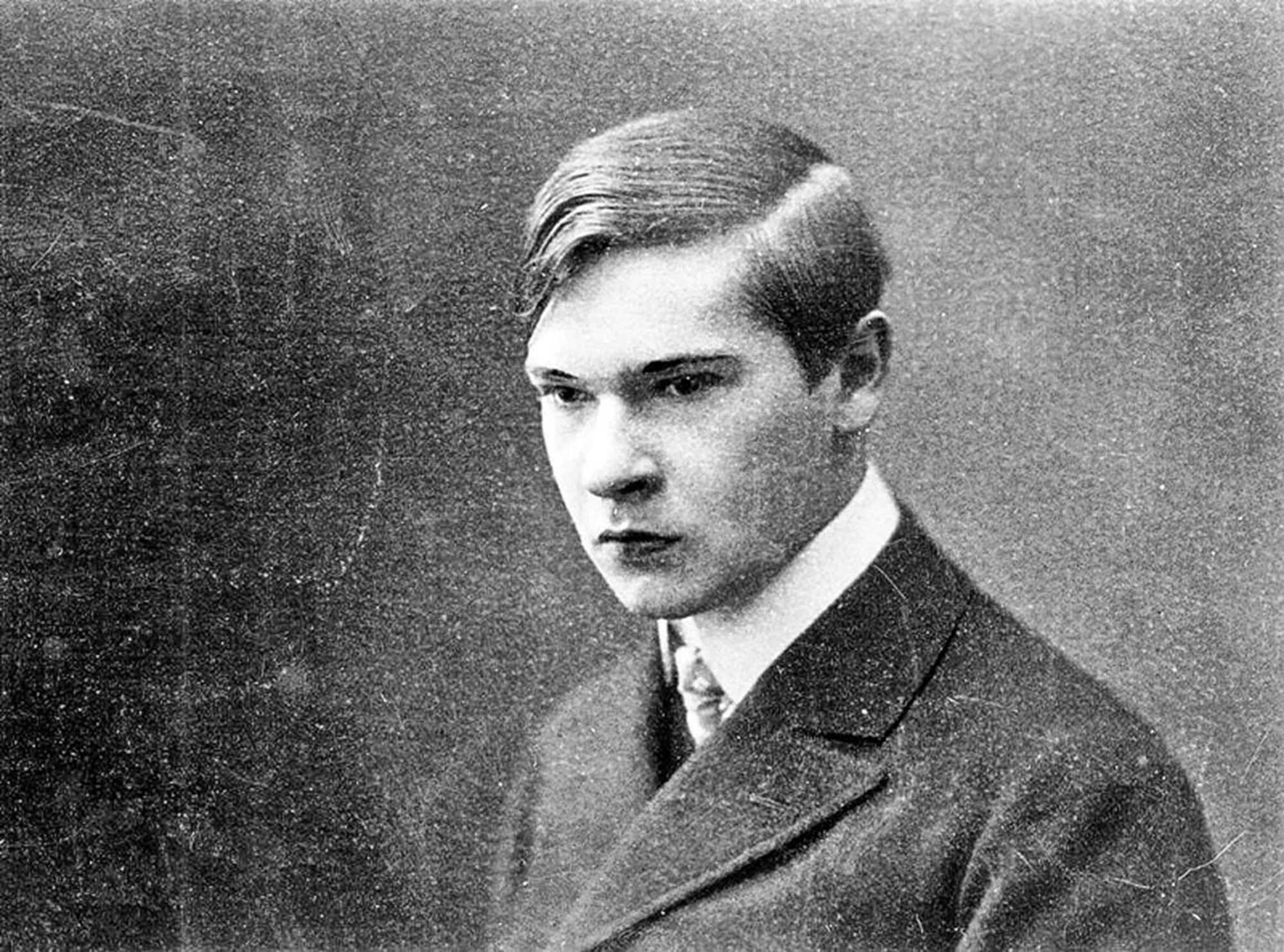
Trakls 100. Todestag Die Disharmonien der Zeit Literatur derStandard.at › Kultur
An Analysis of "Grodek" by Georg Trakl. Trakl paints the images of a field and natural beauty, then contracts them to the reality of the activities on said field. Trakl addresses the reader as though confessing the stresses, difficulties and observances made of a battle ground. The poem opens in such a way as to imply it is a romantic poem.

Trakl. A caixa de música que toca depois do fim do mundo
Georg Trakl is an important lyric poet in German literature of the early 20th century. Critics associate his work with various modern artistic movements, and he is viewed as one of the principal writers to set the dark, introspective tone that later influenced the course of German expressionism. Affinities with imagism have also been noted in Trakl's strikingly visual style.
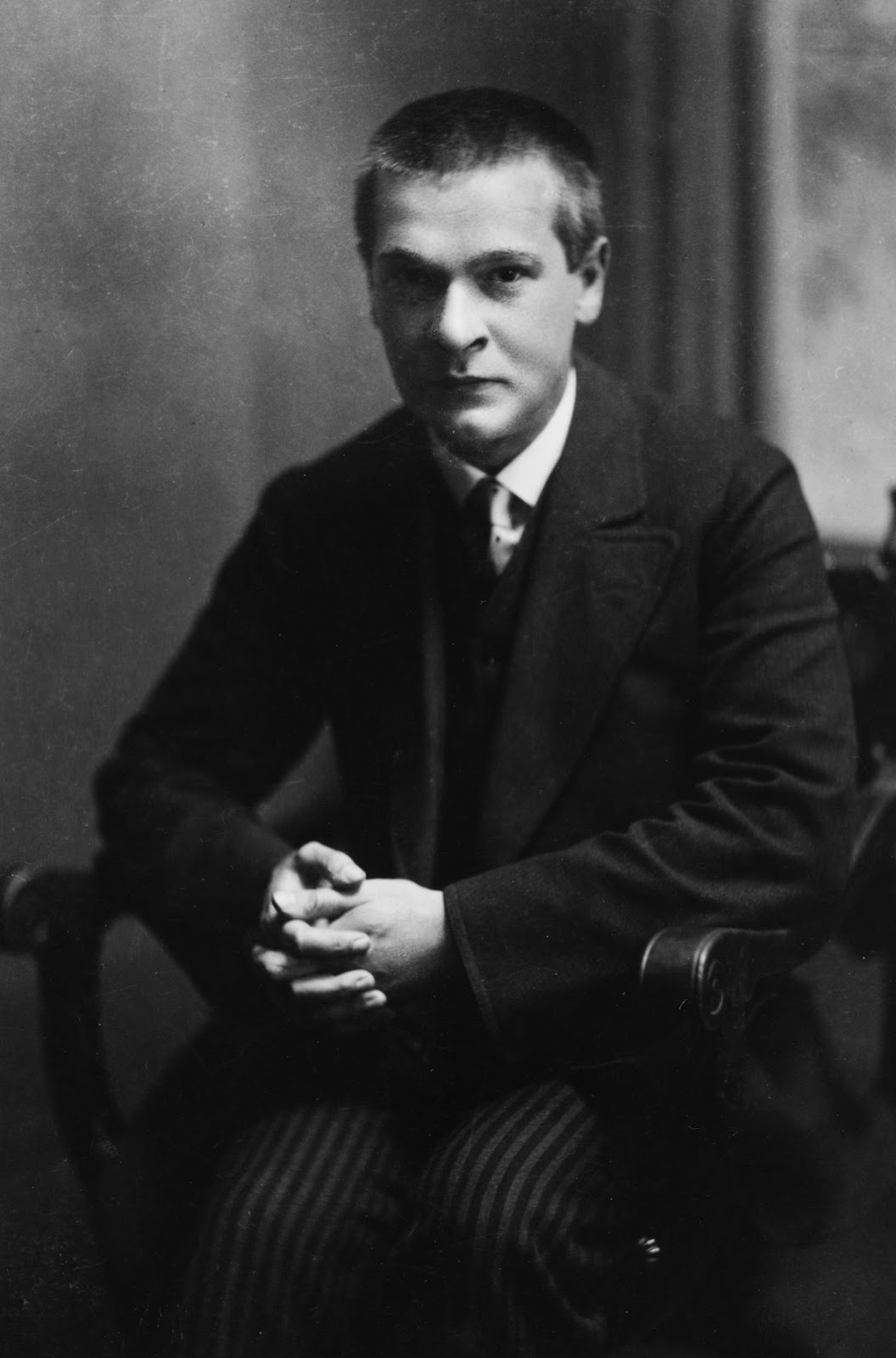
Trakl poeta expressionista austríaco Templo Cultural Delfos
Trakl's "Grodek," equally frequently anthologized, is quite different in style, violent in feeling, and with a breakdown in normal syntax quite unlike Rilke's poem. There is also a. Georg Trakl's "Grodek" has been translated by Michael Hamburger, a poet. Translation and Dissection: Teaching the Modern German Lyric: Rilke's "Herbsttag" and.